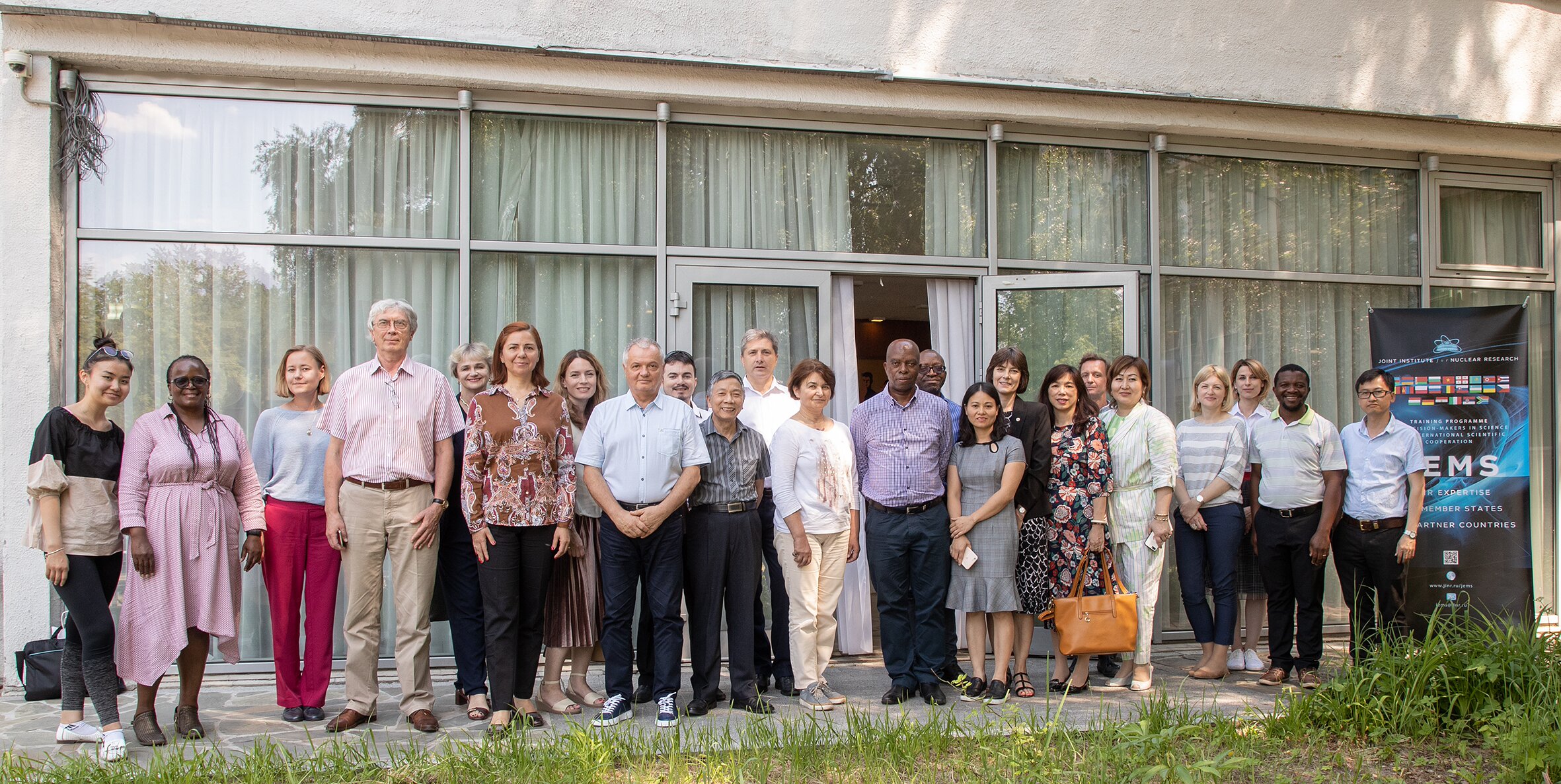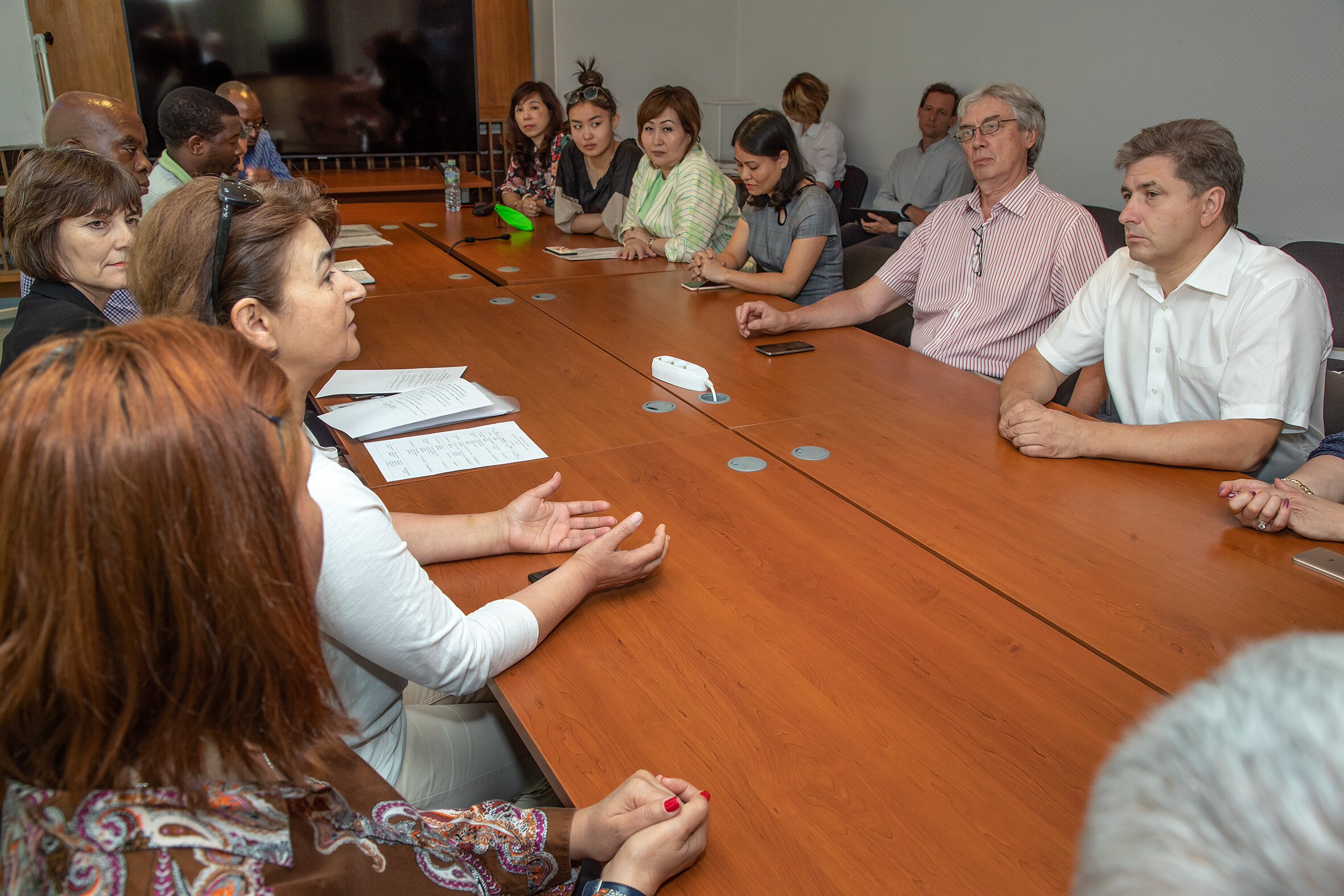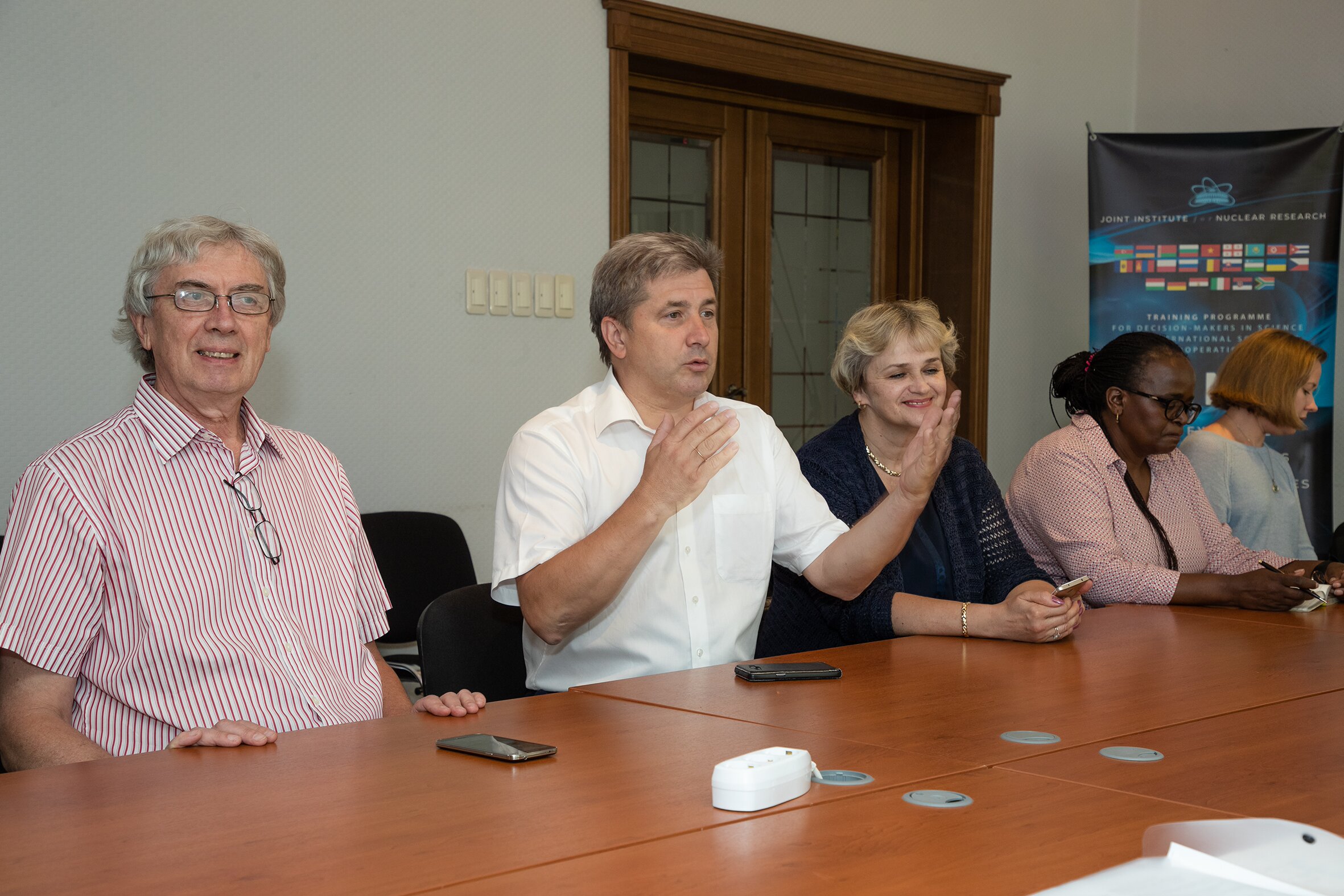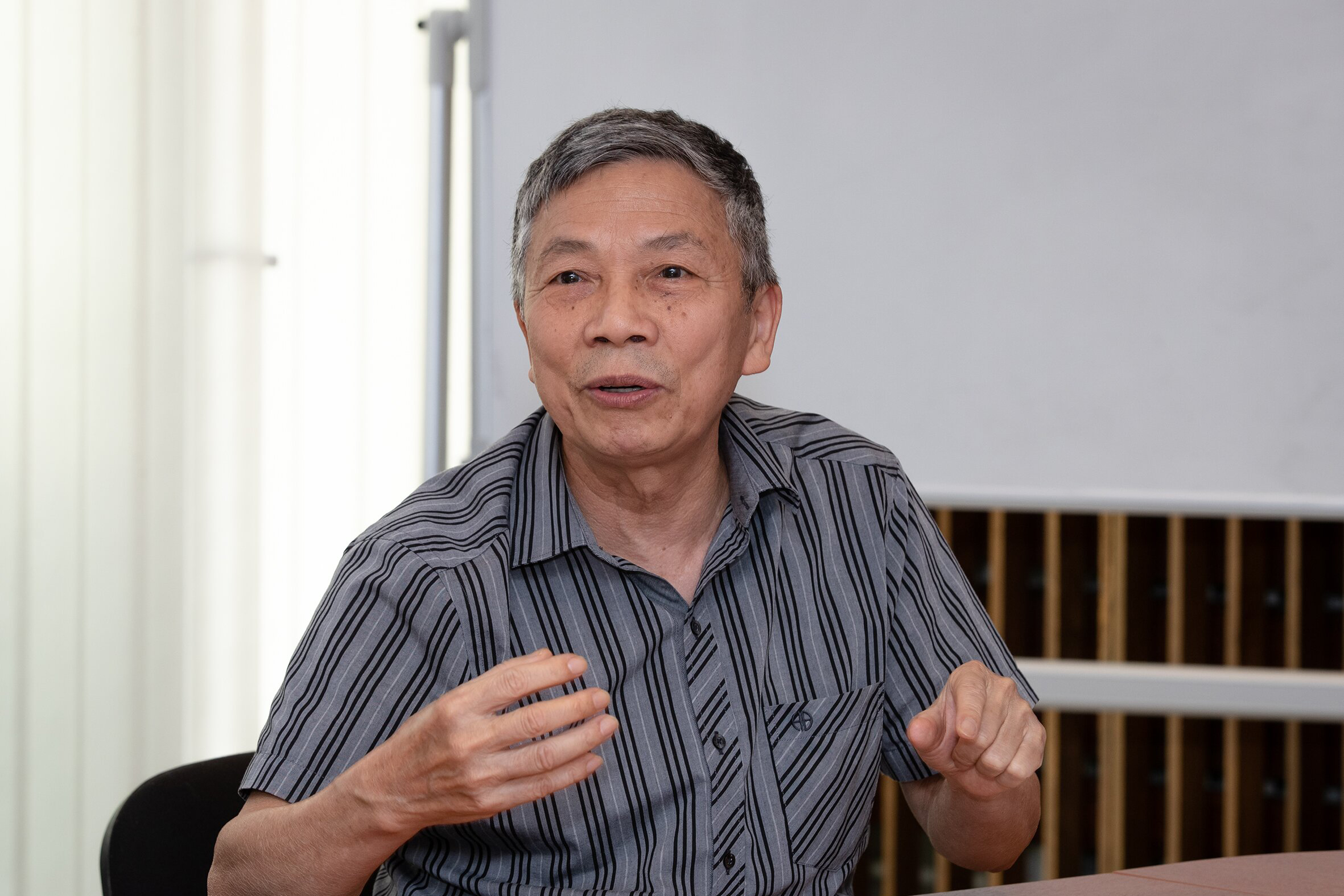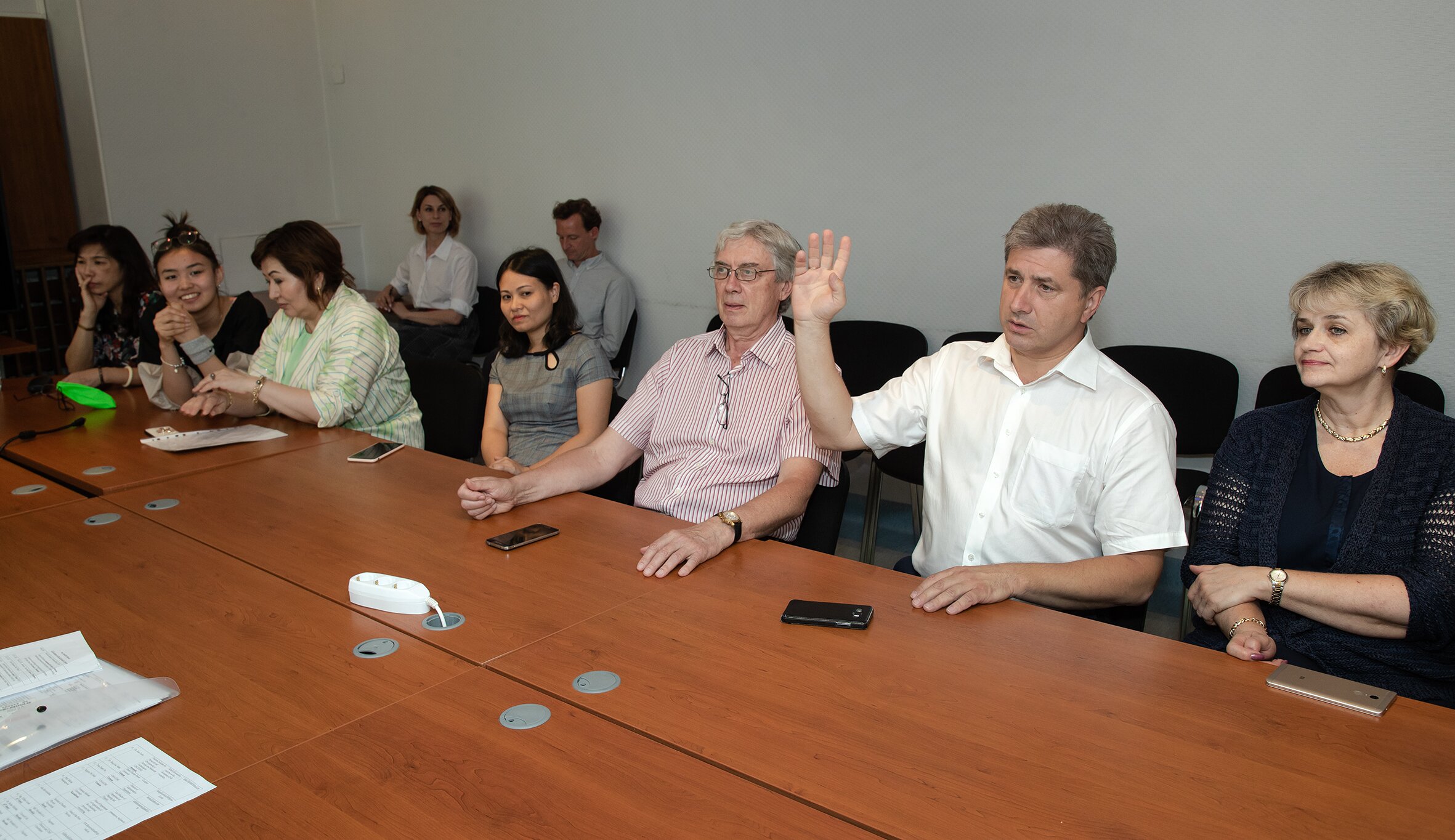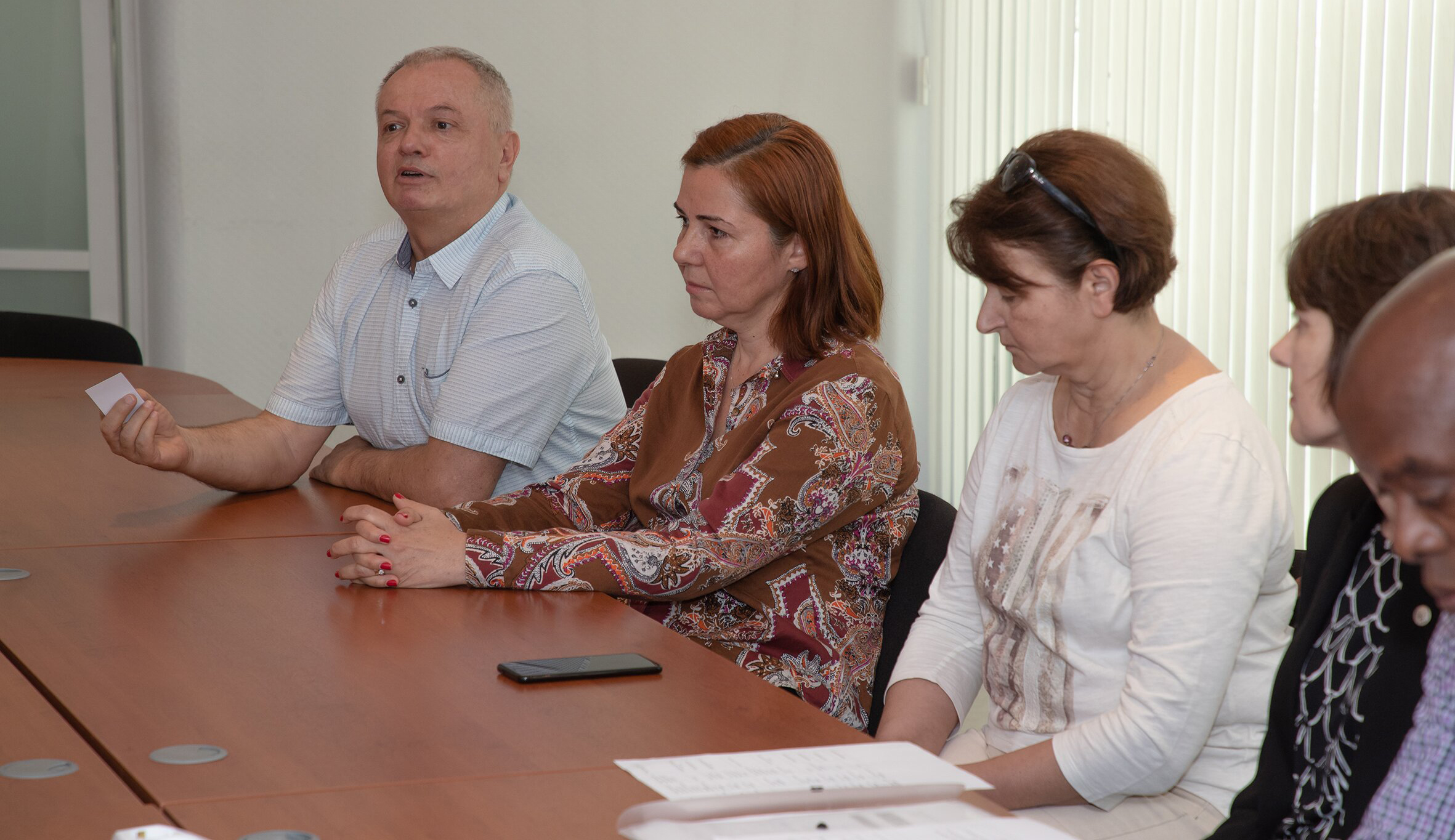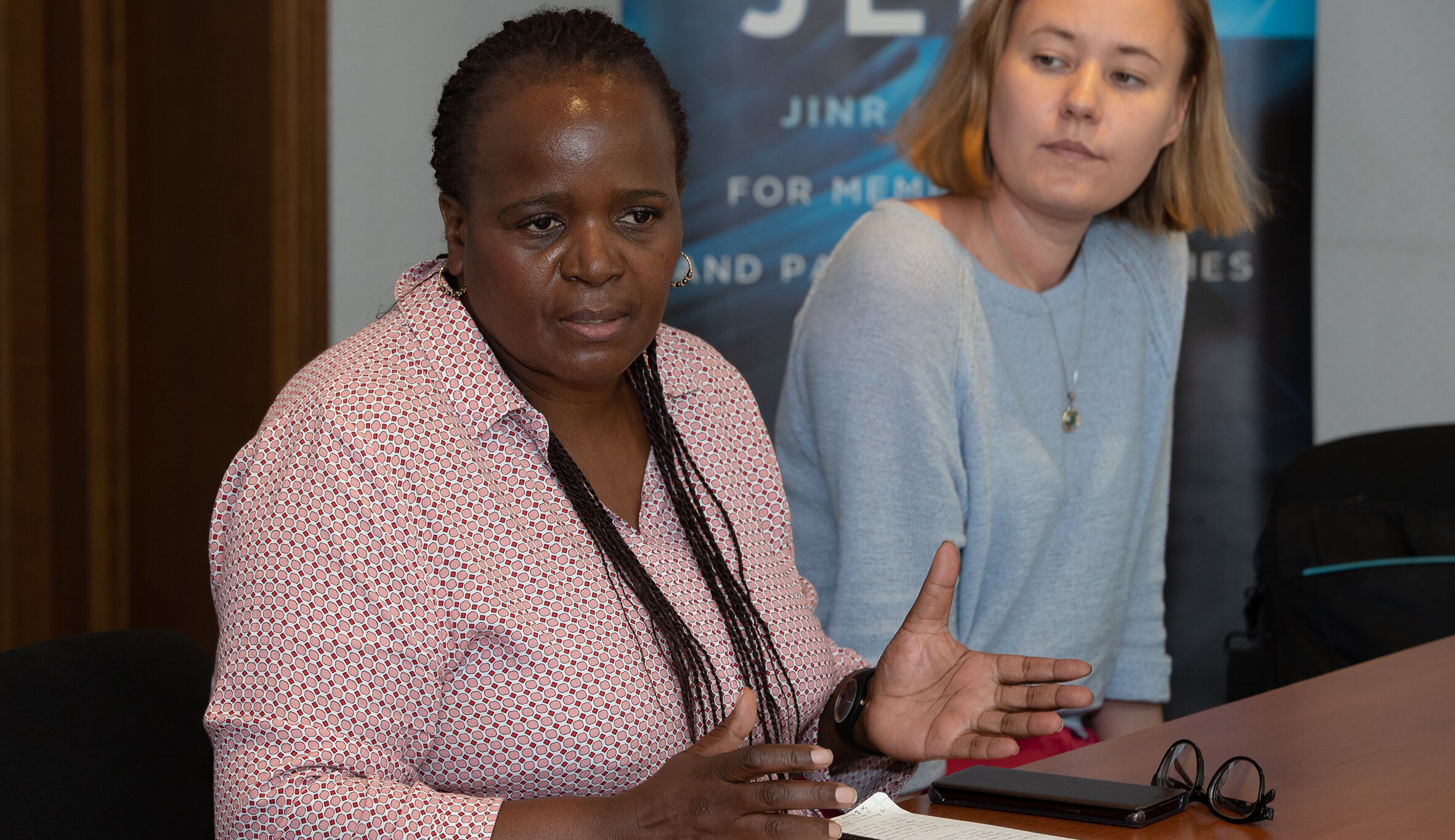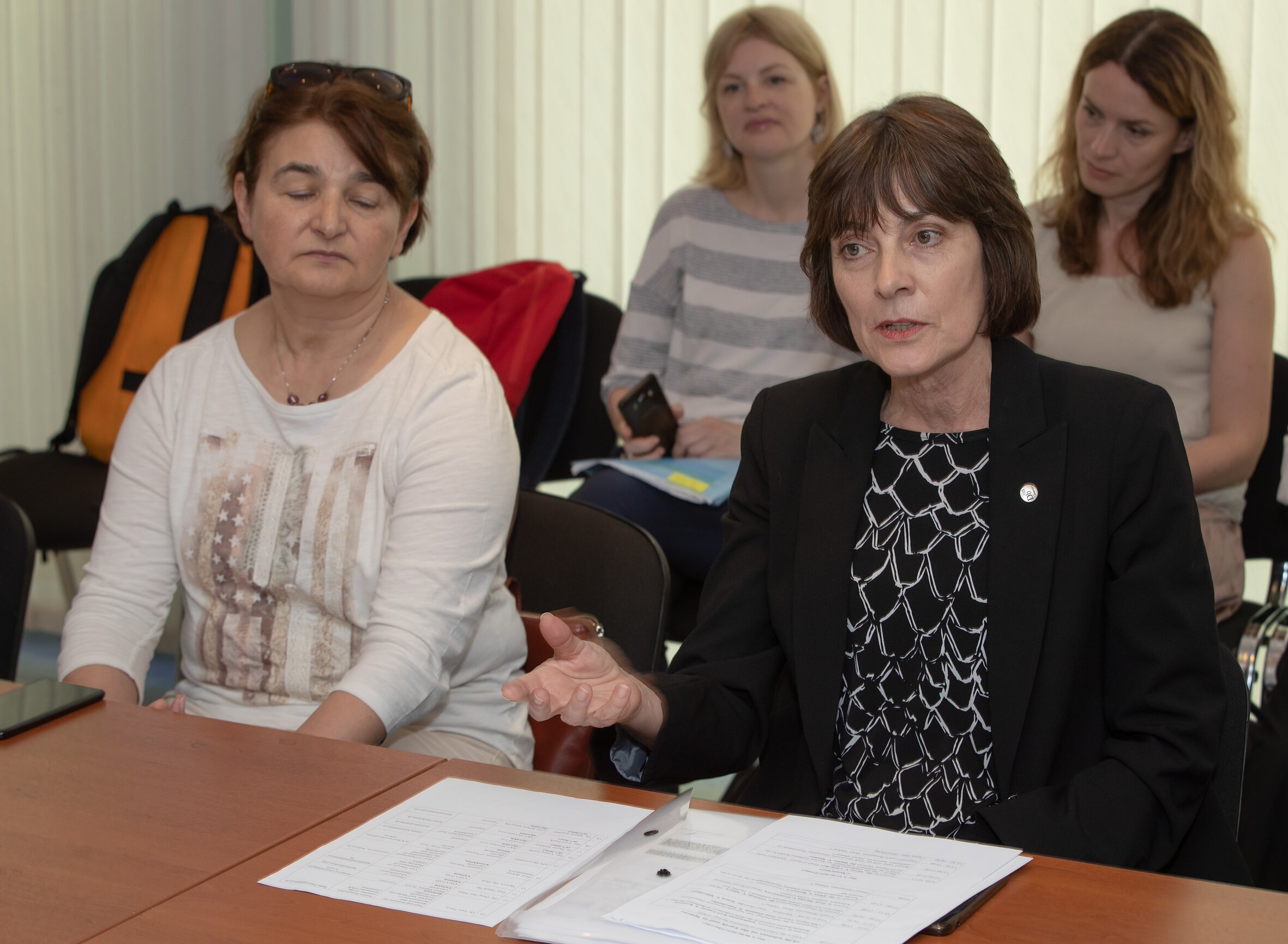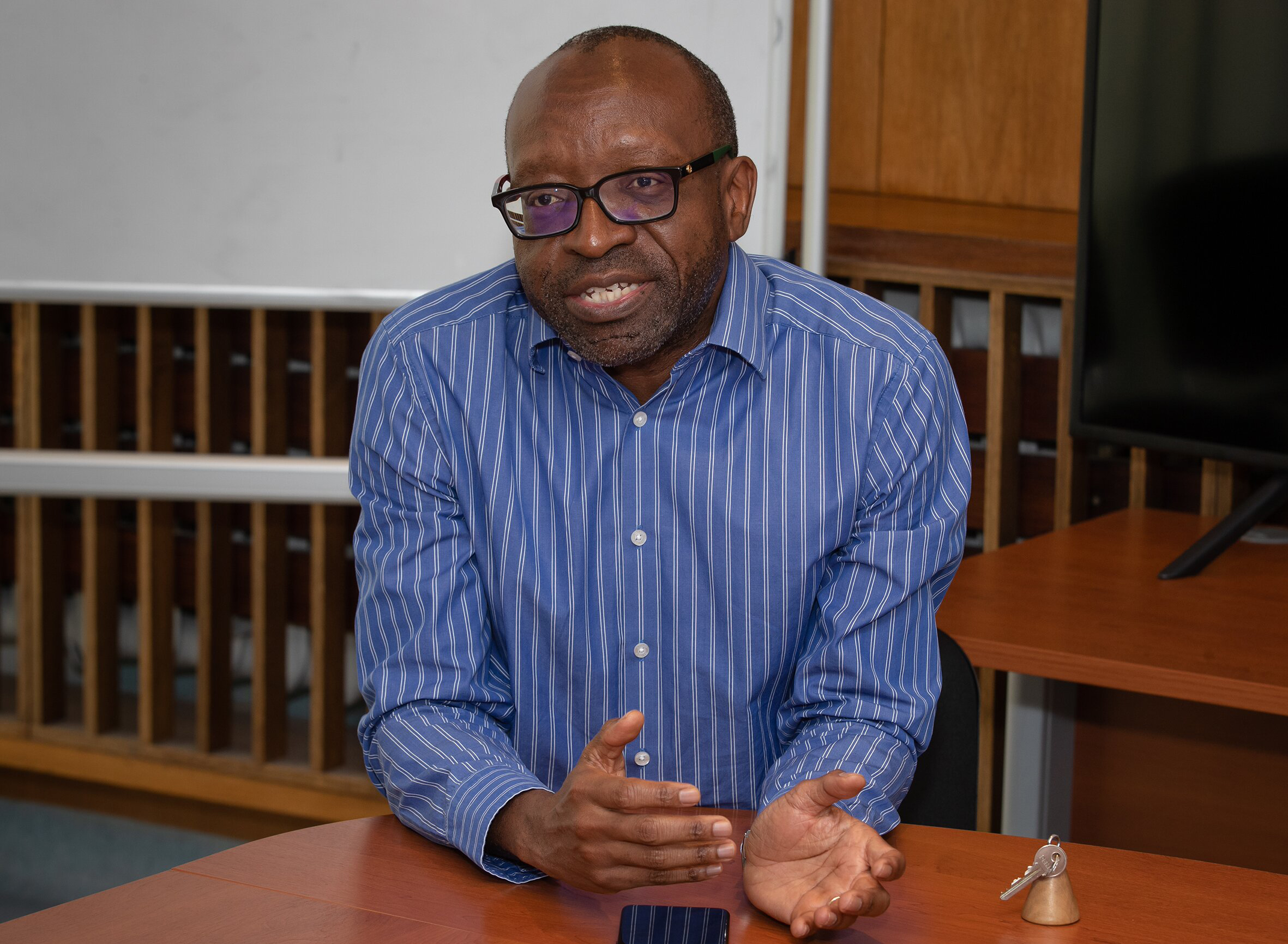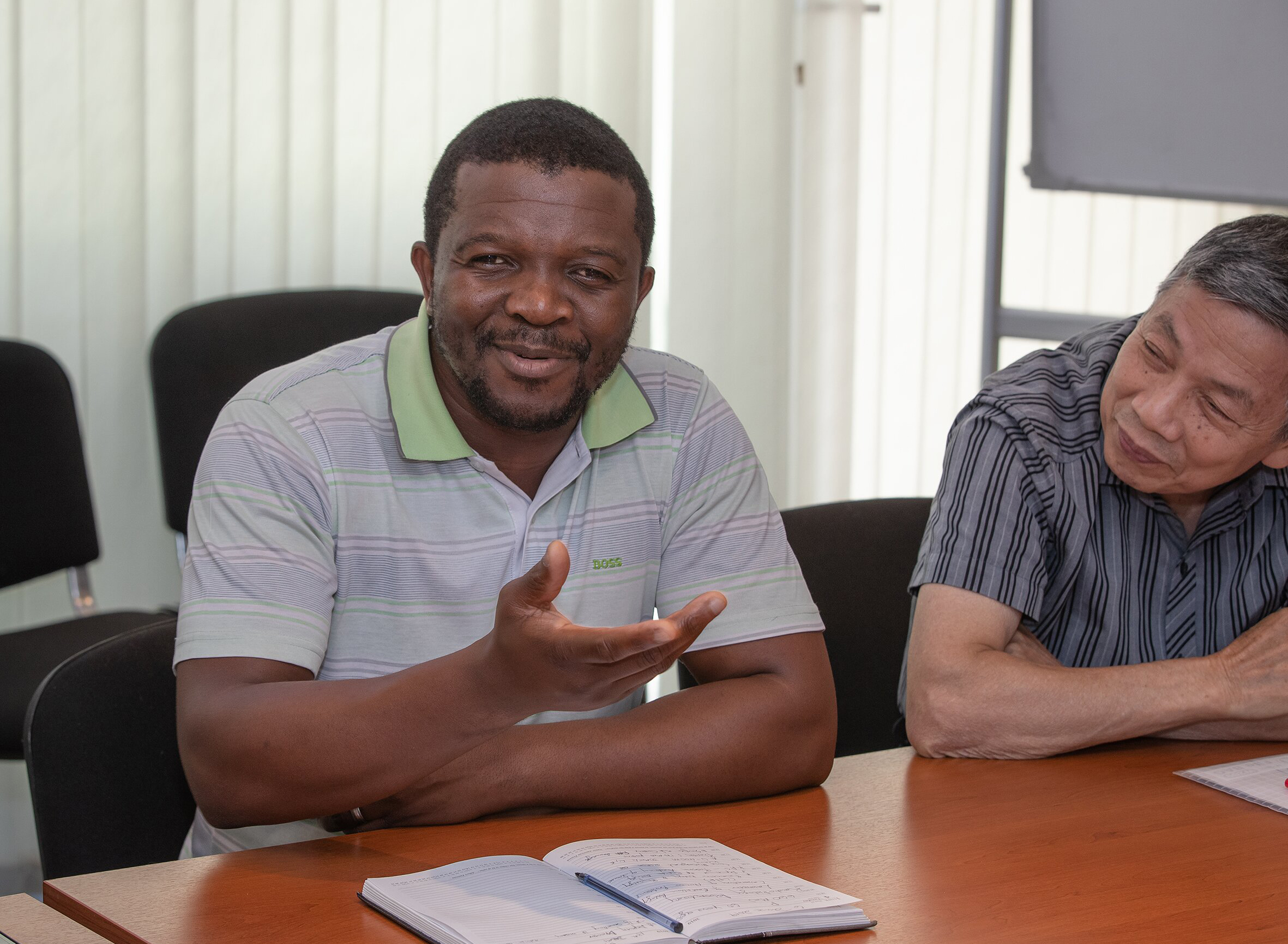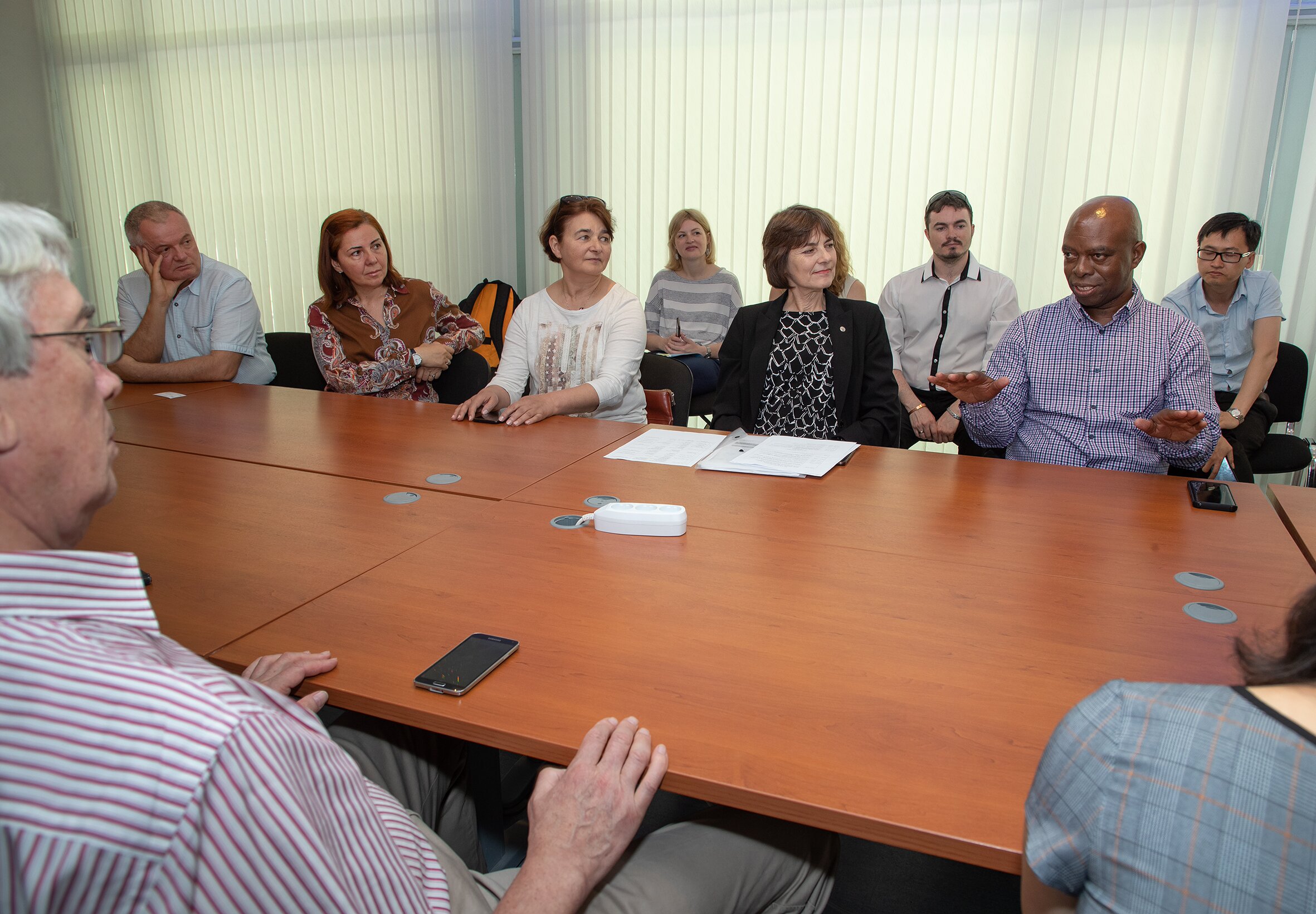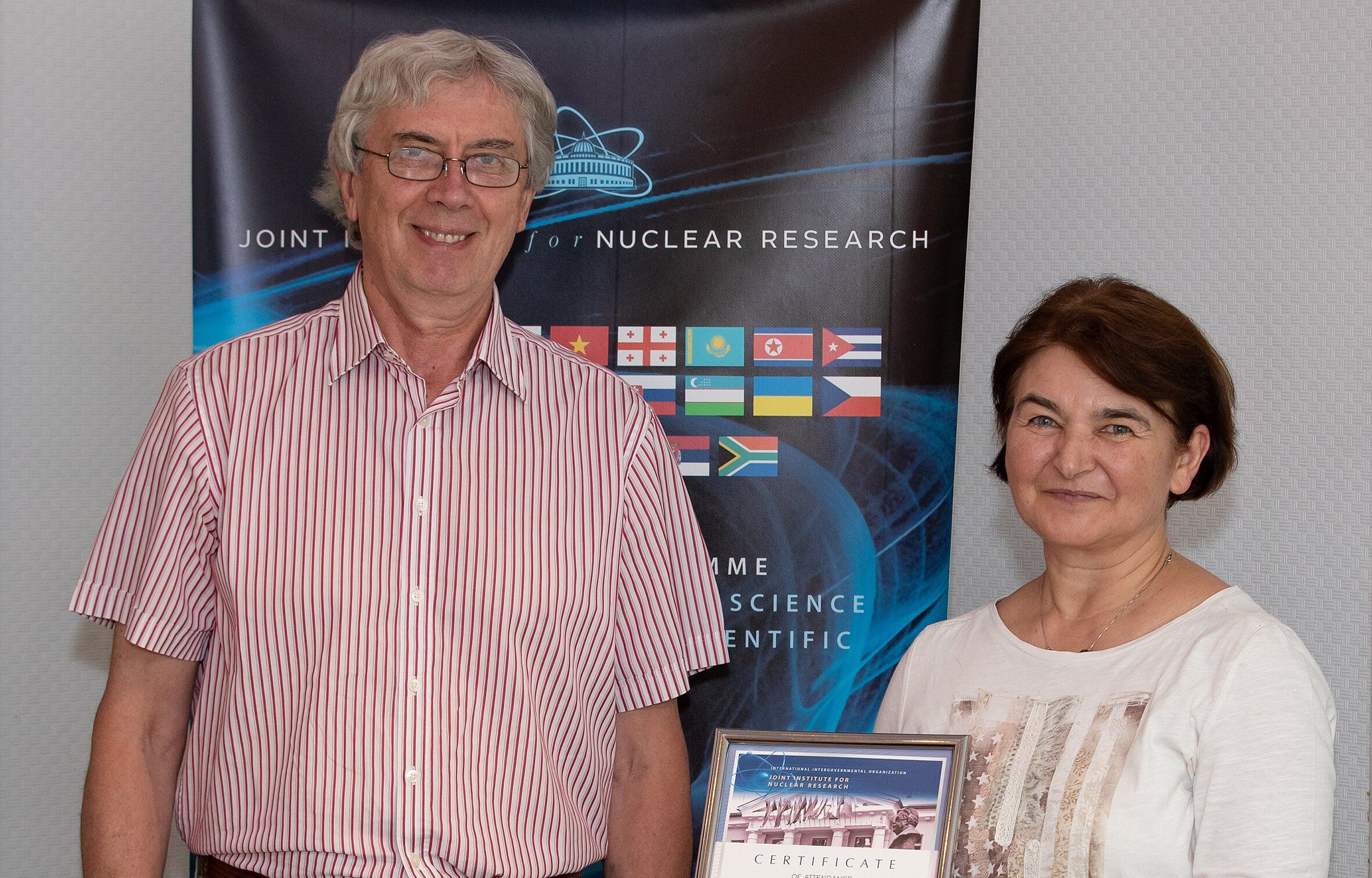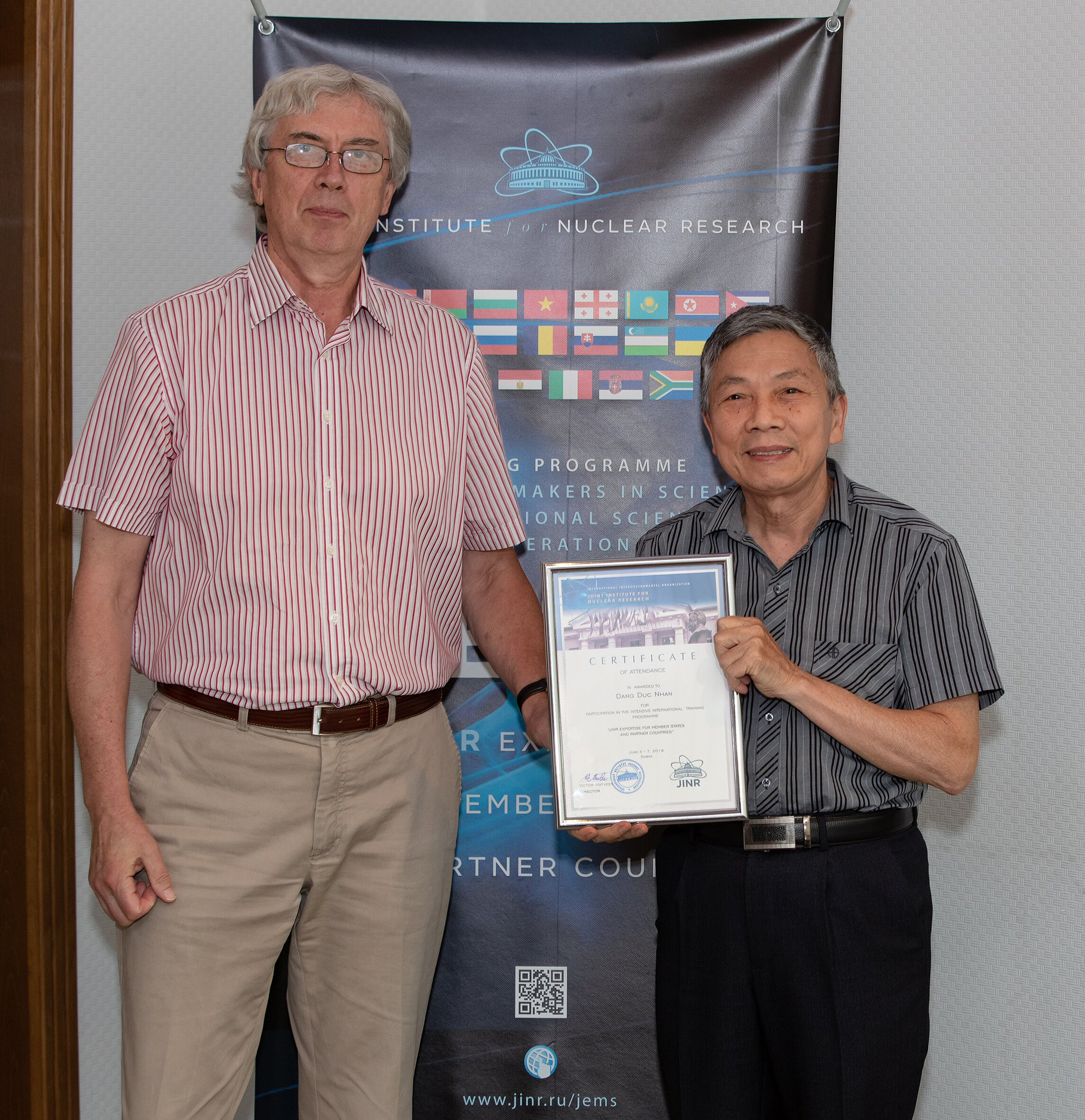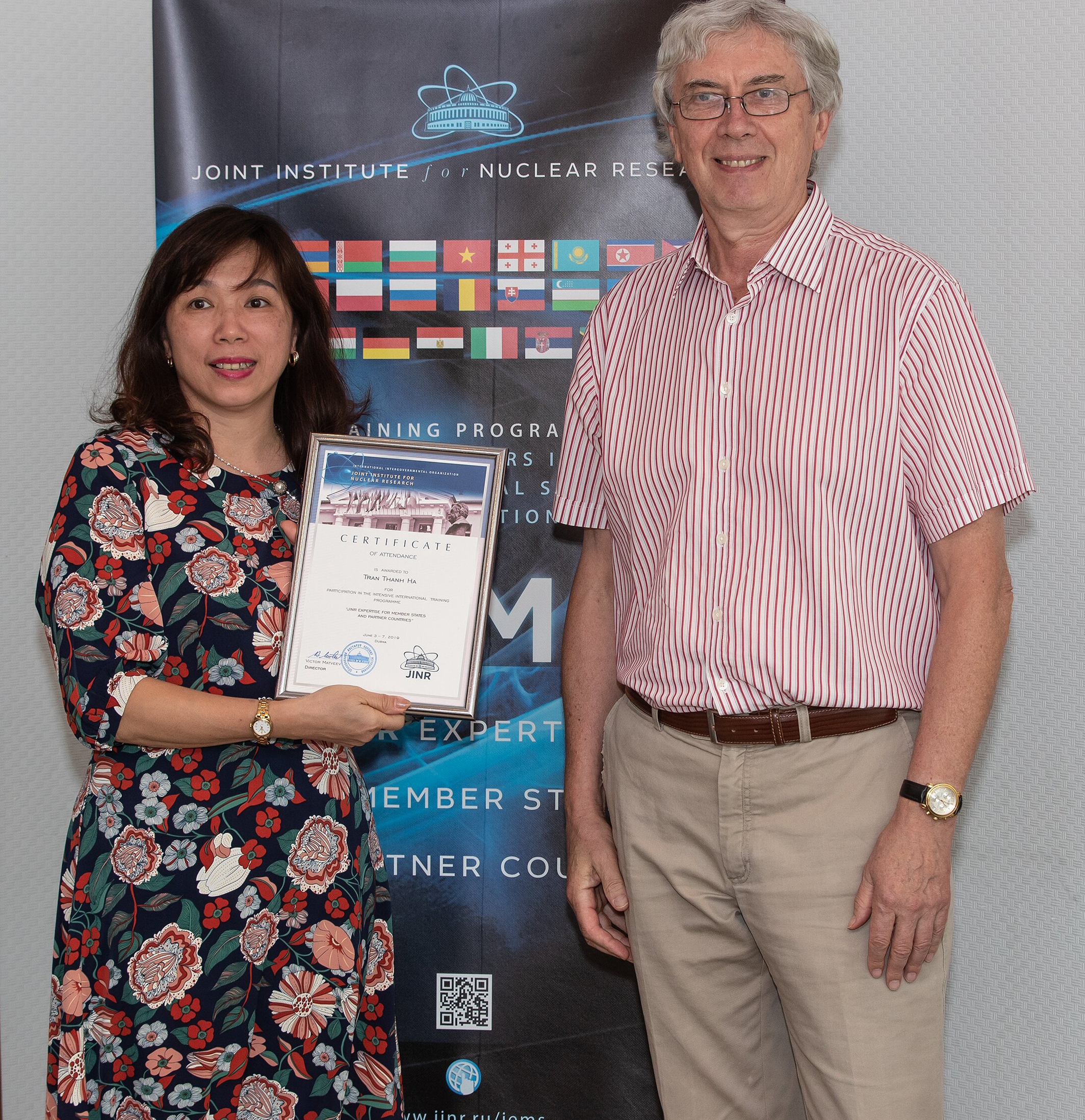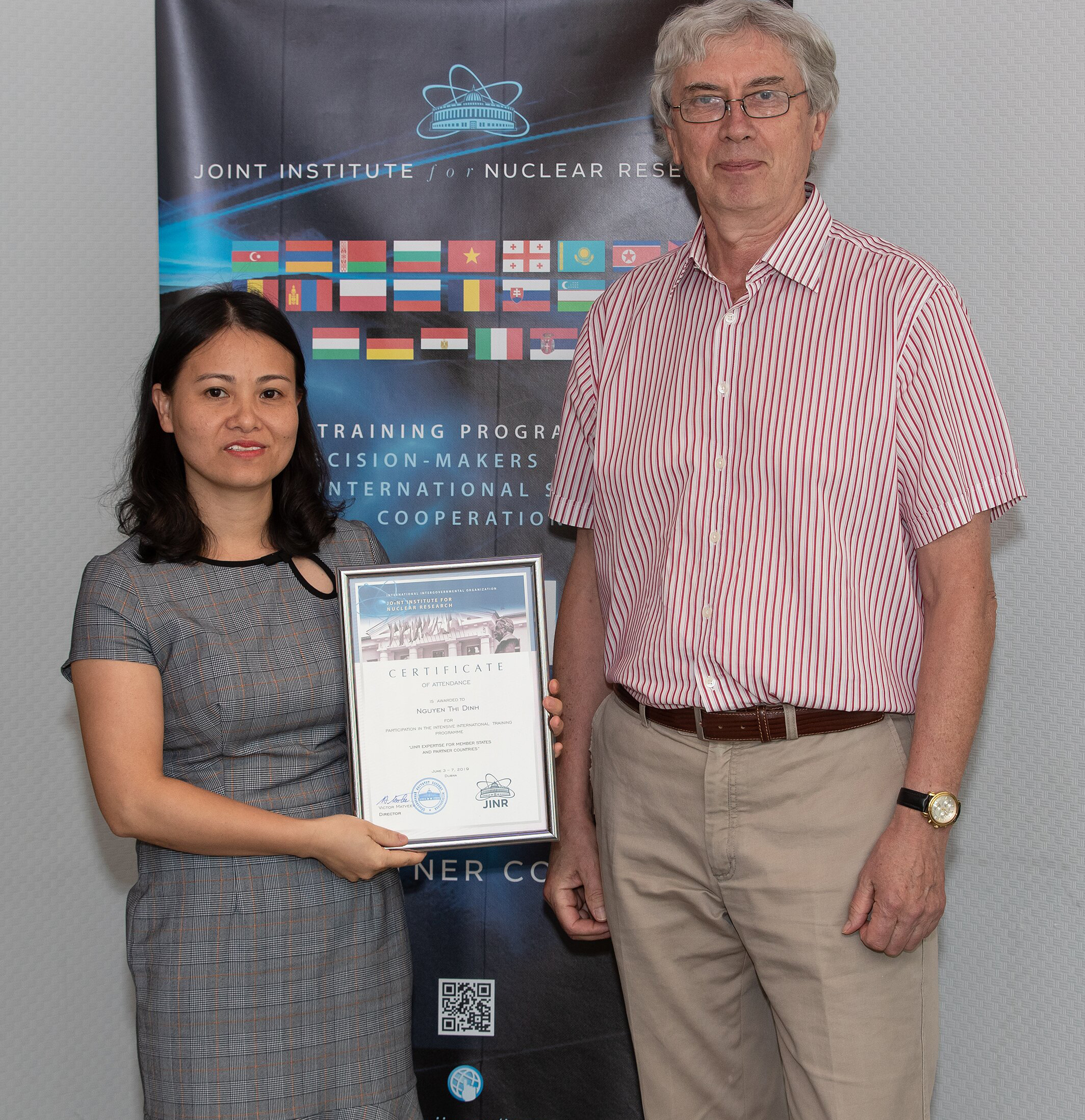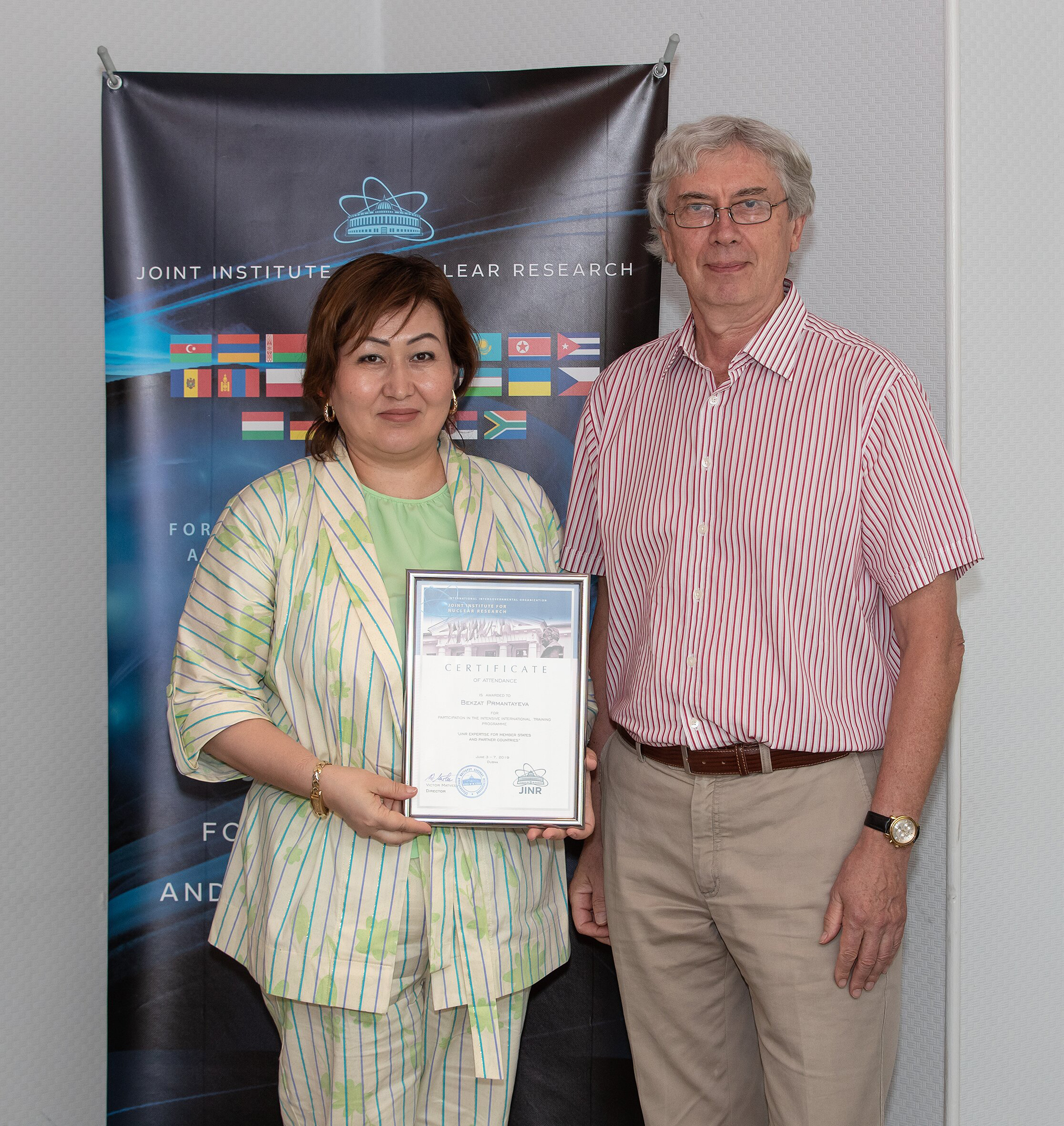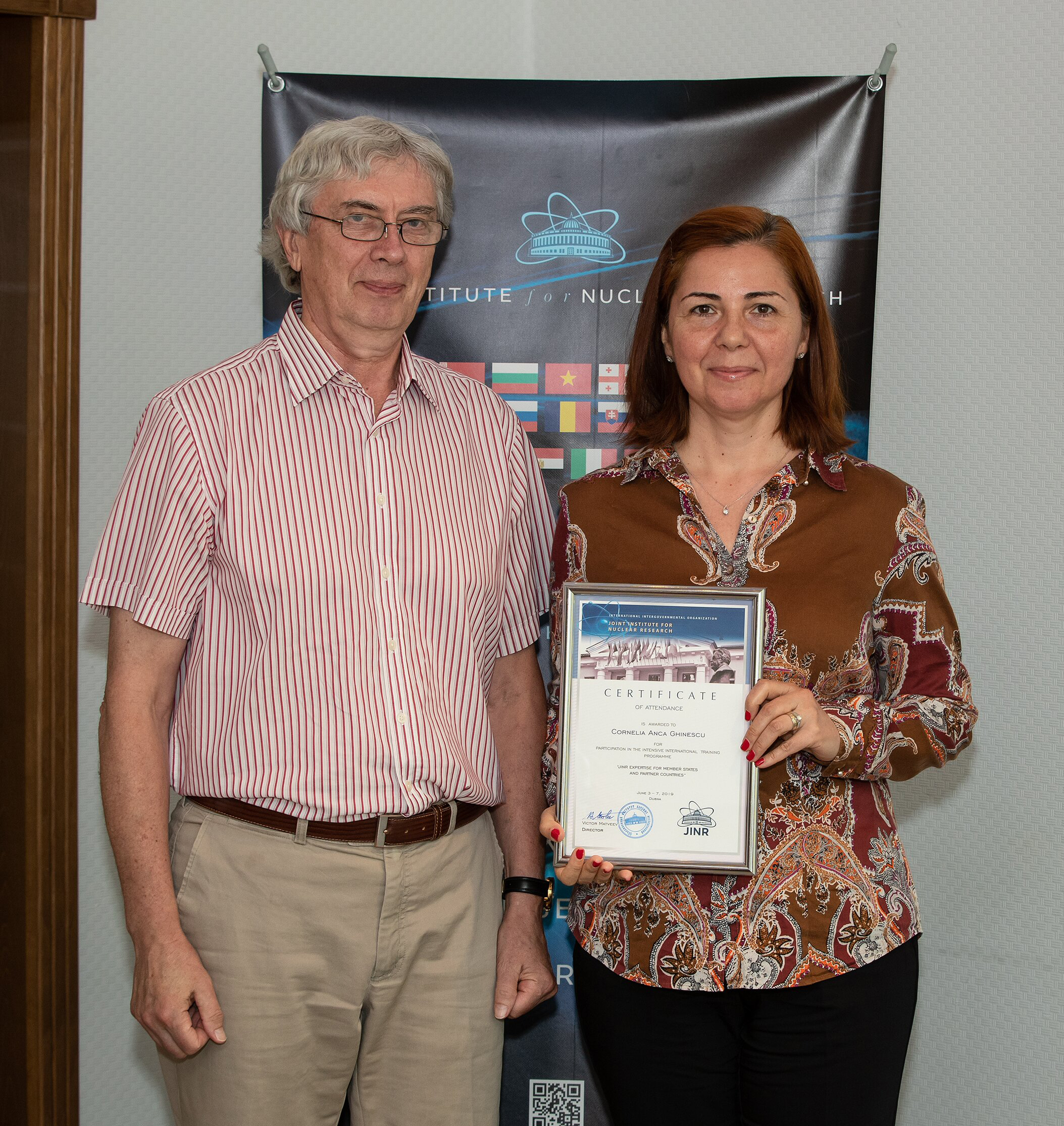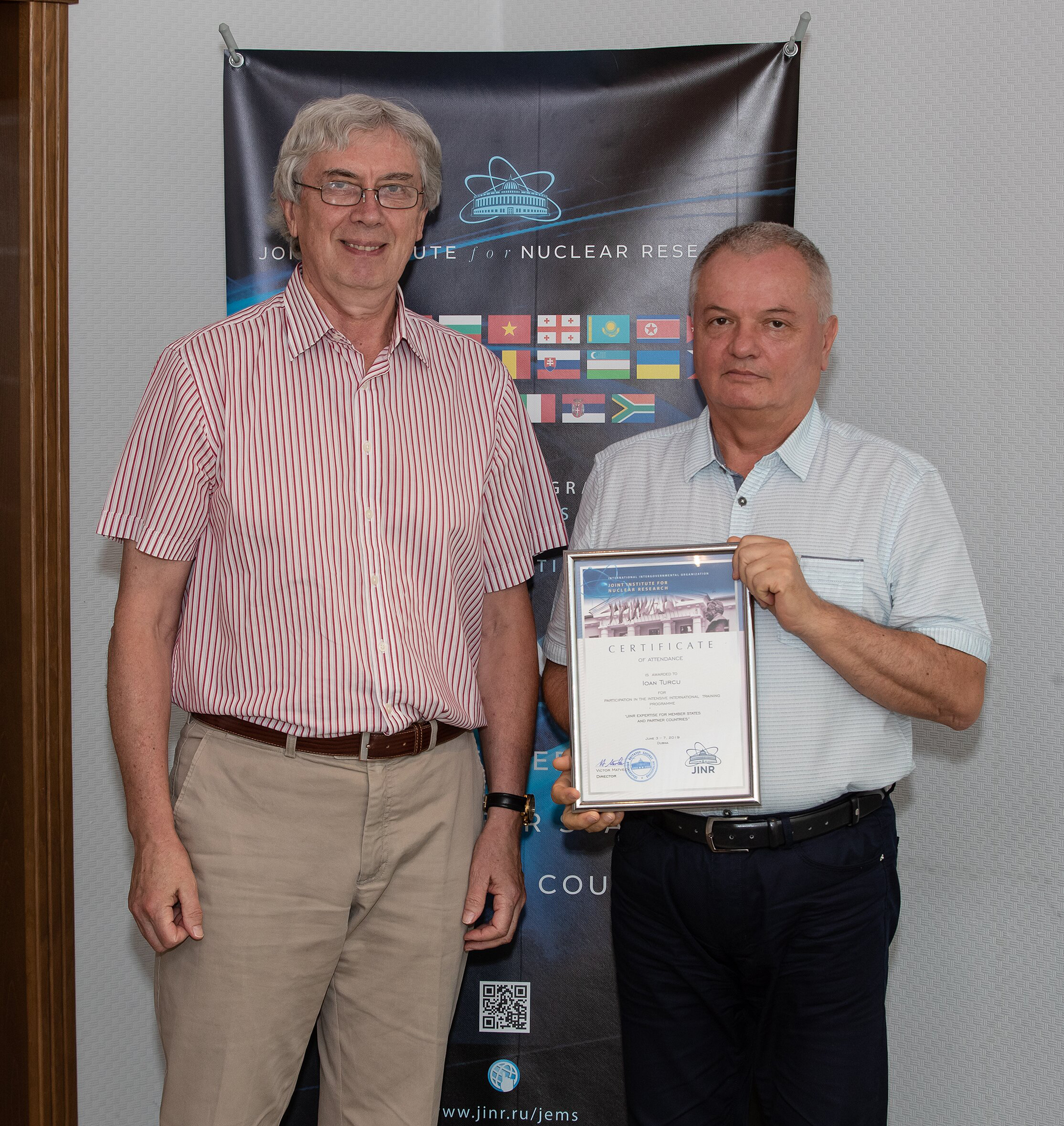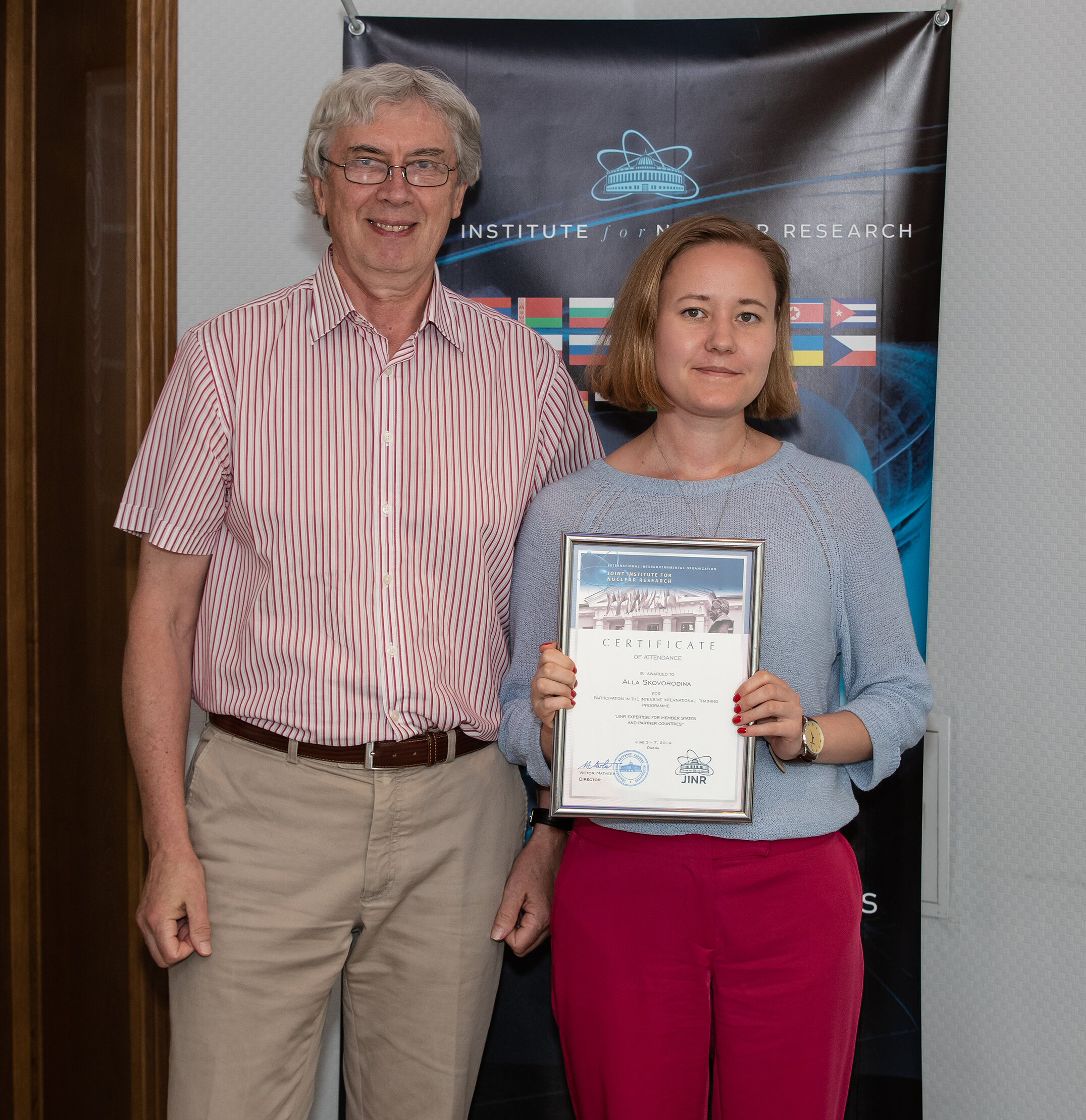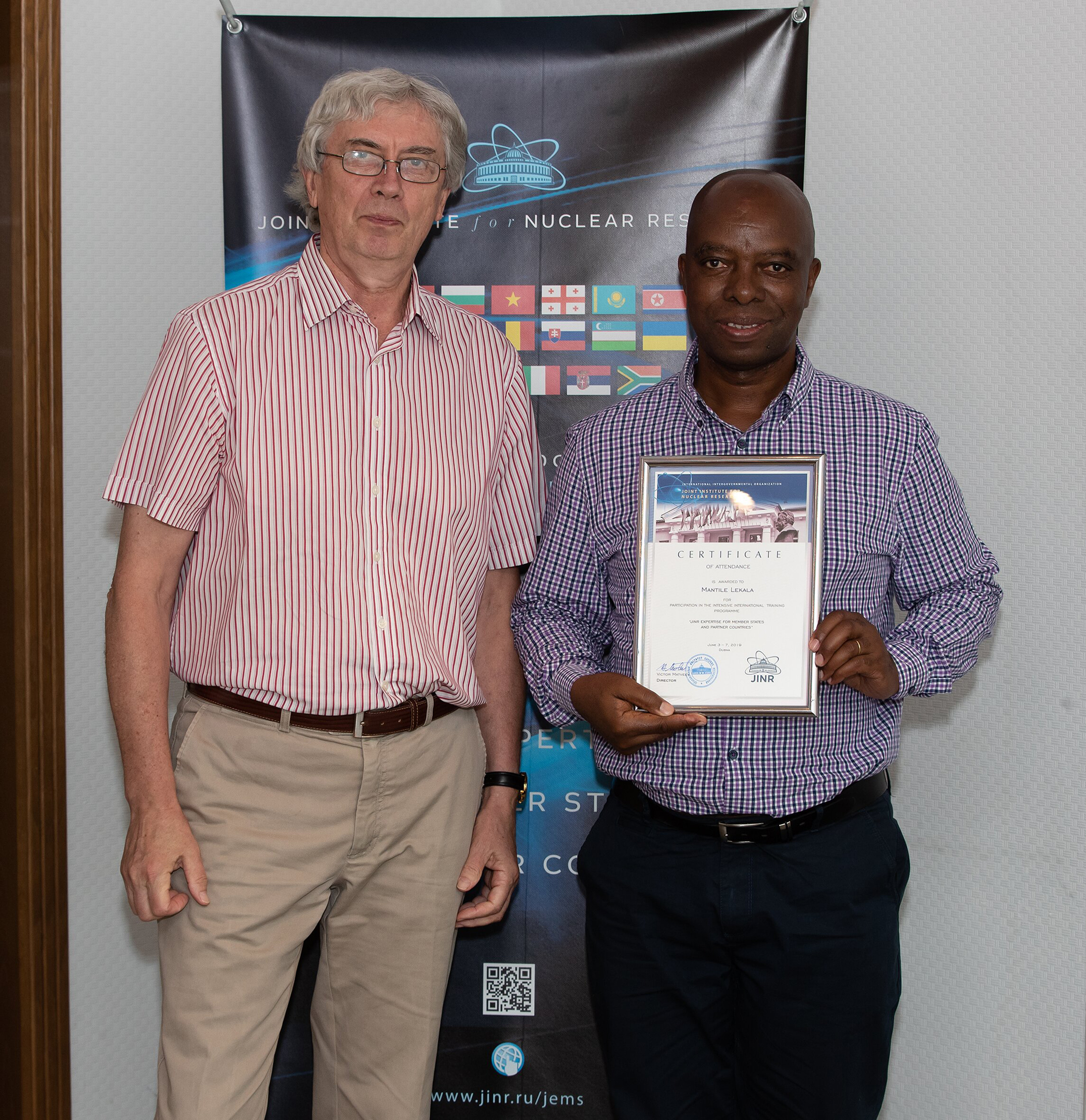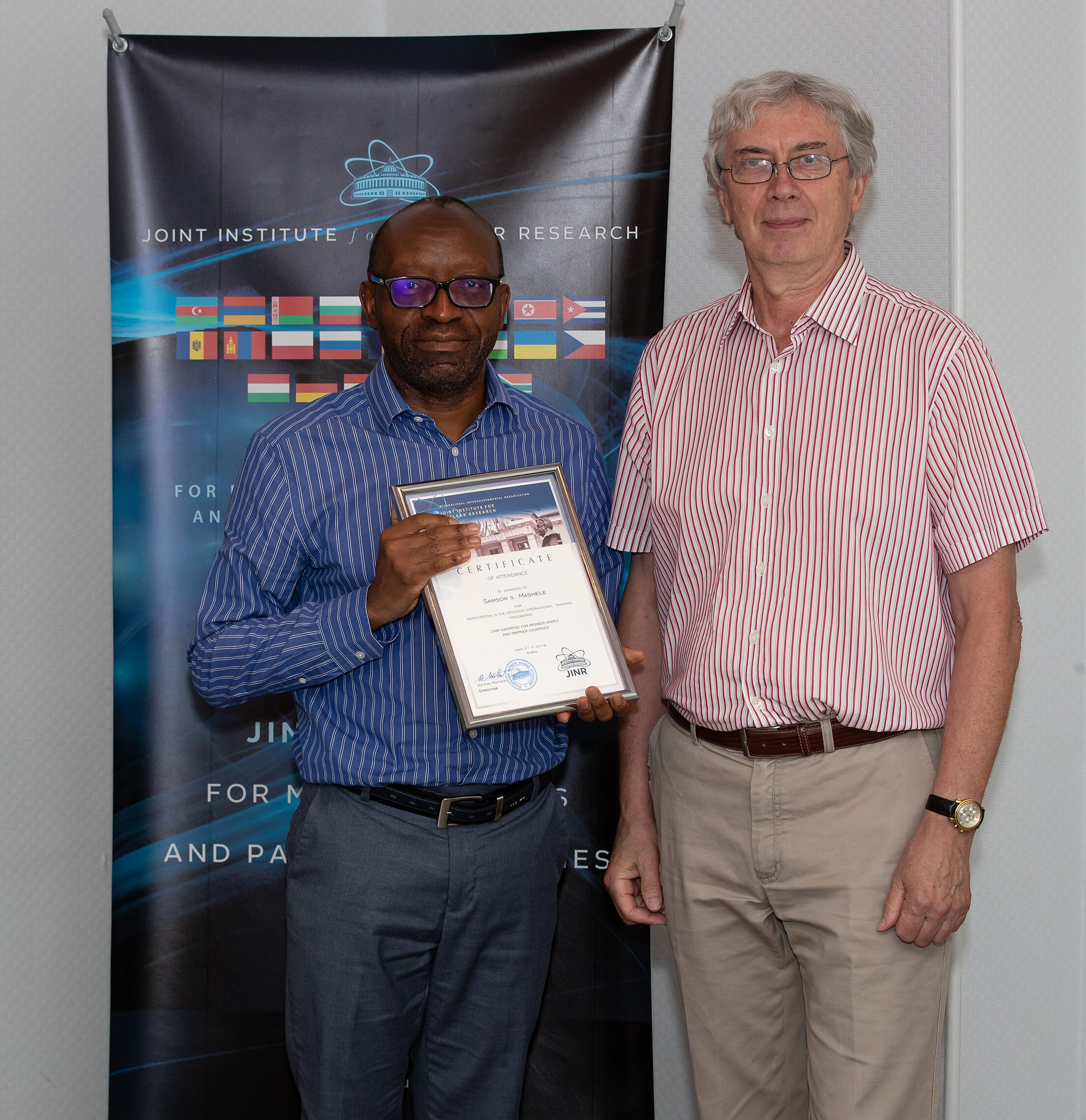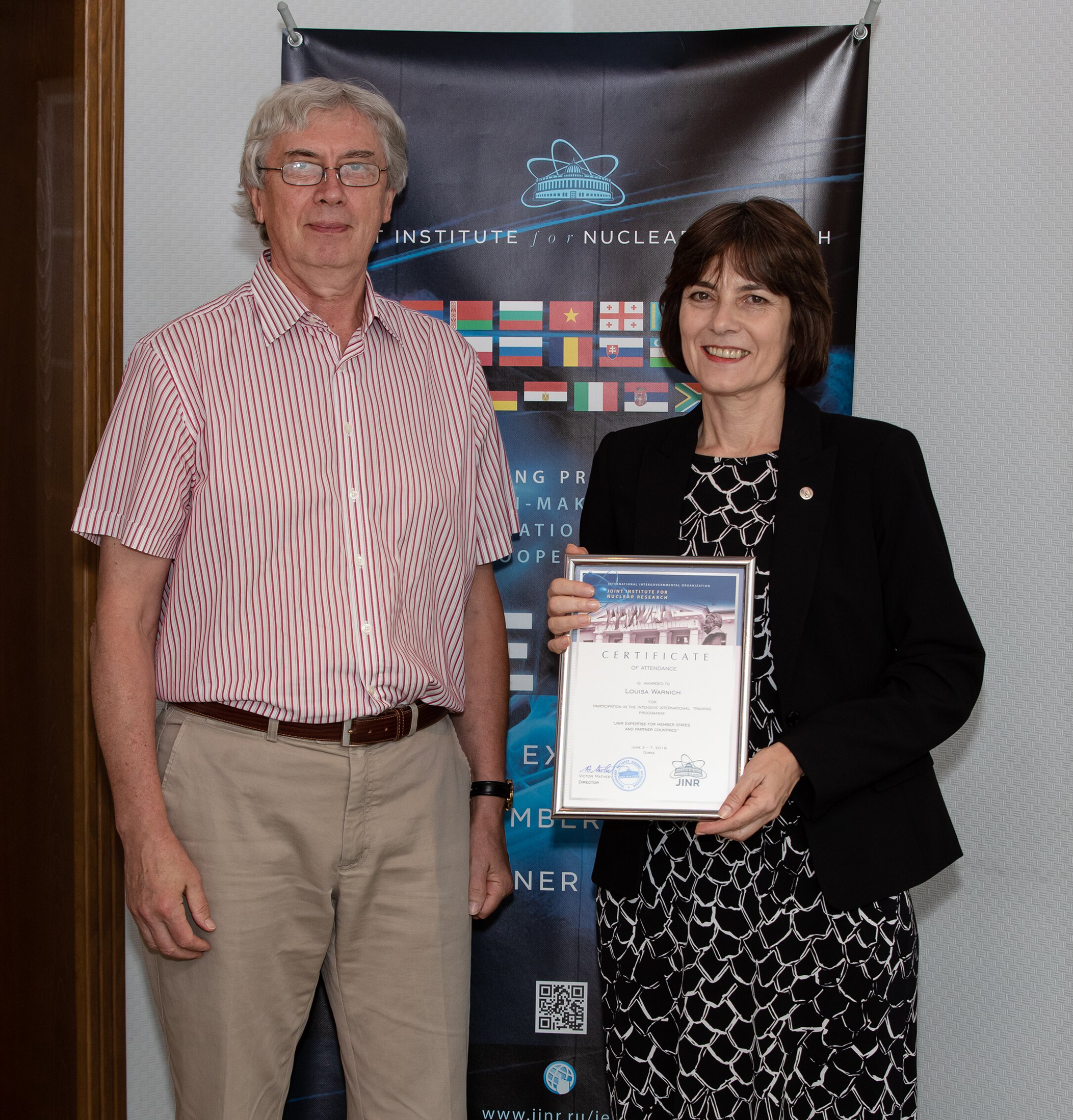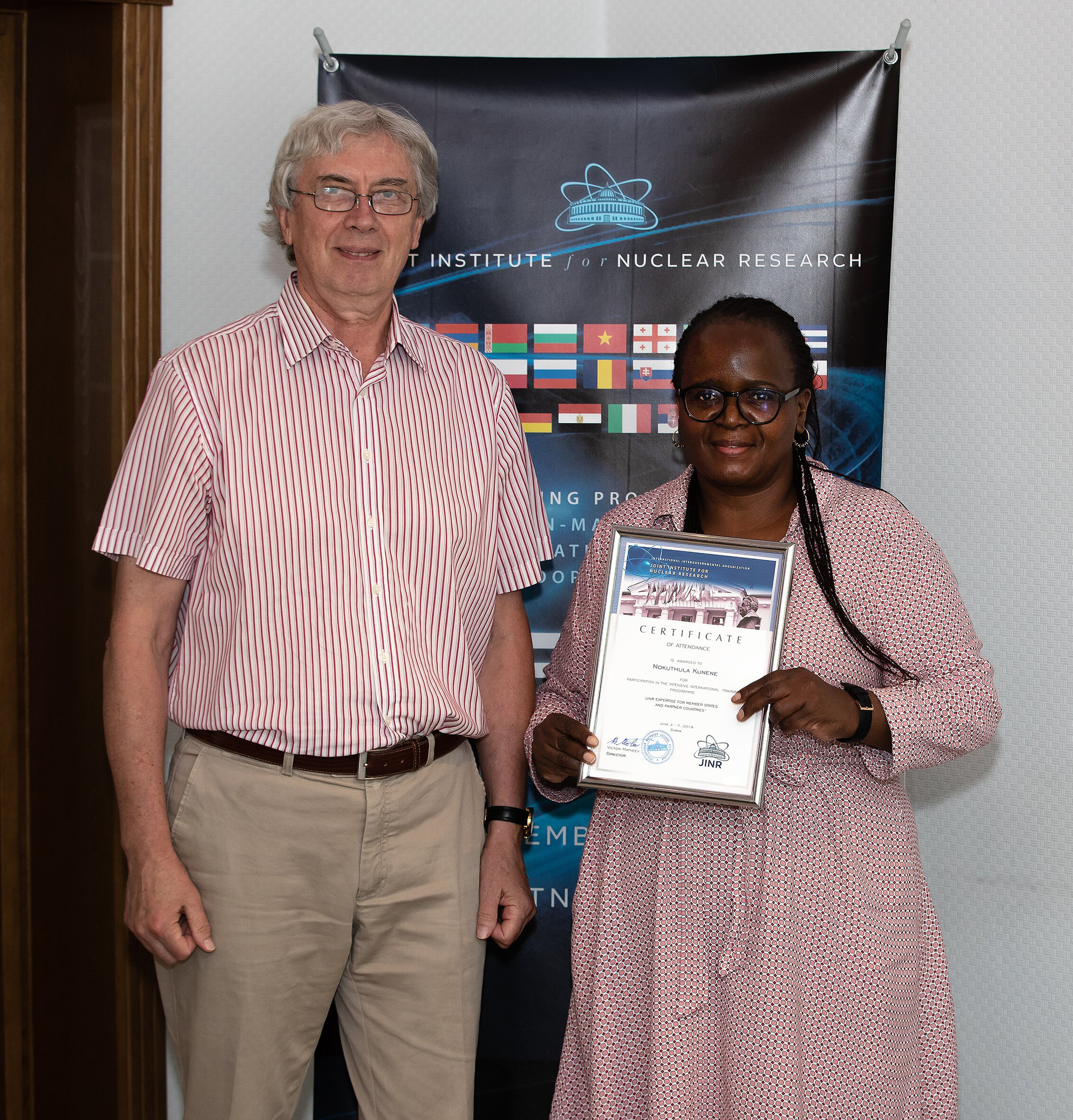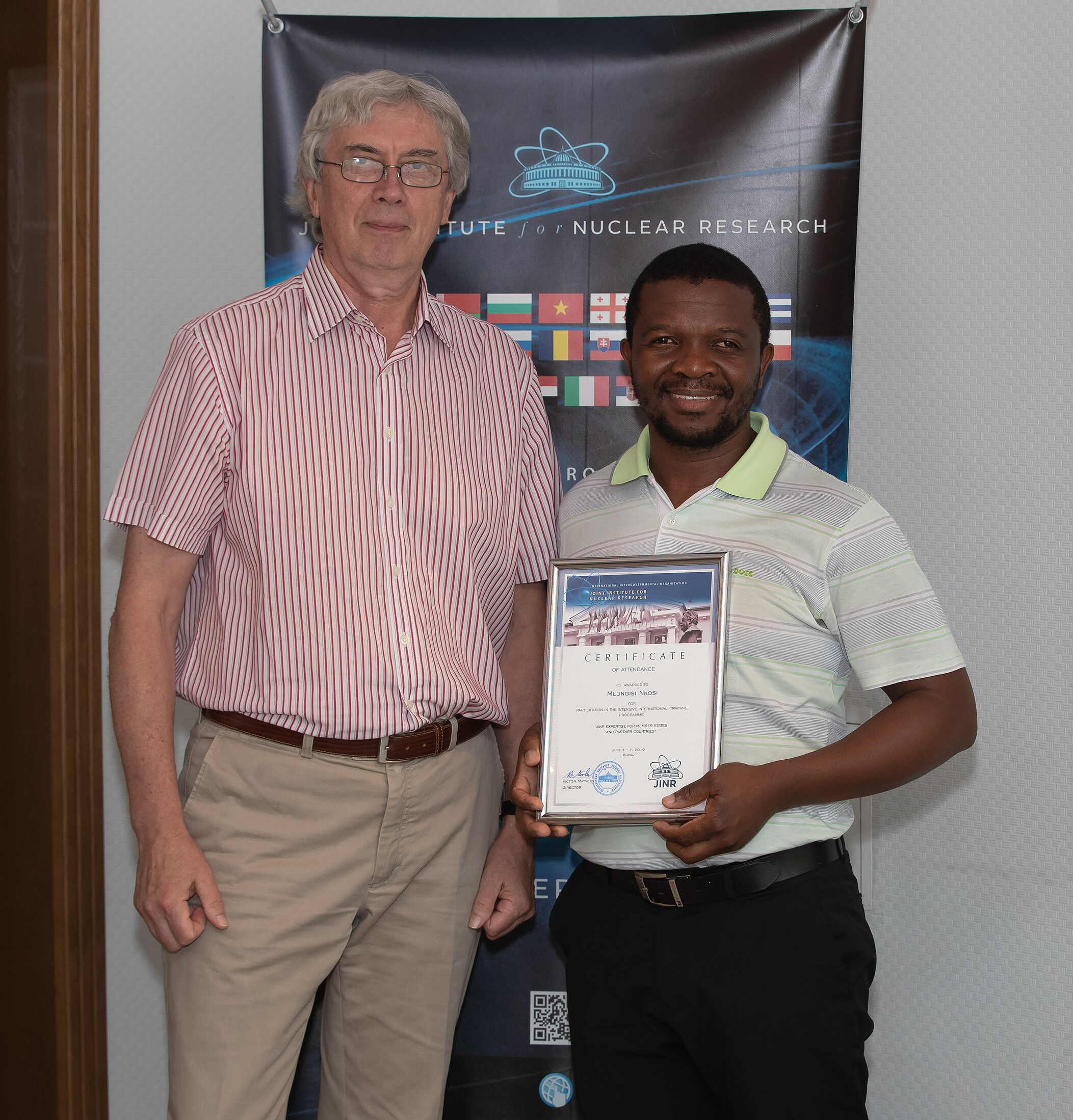JEMS-12 was concluded: “The training programme exceeded all expectations”
News, 17 June 2019
On 7 June 2019, the 12th International training programme for decision-makers in science and international scientific cooperation JEMS – «JINR Expertise for Member States and Partner Countries» (JEMS-12) was concluded. The training programme gathered representatives of scientific, educational, and state organizations from Bulgaria, Kazakhstan, Romania, the RSA, Russia, and Vietnam. During five days, JEMS-12 participants learned about various aspects of JINR activities, heard lectures by leading specialists of the Institute, and visited the laboratories.
Just as a year ago, the start of JEMS coincided with the start of the Student Practice, and at the end of the training programmes, professors from the RSA who had come to JINR in the frames of the Science Deans Forum had a meeting with RSA students once again. Another peculiarity of the present training programme was that several delegations chose the JEMS week for visits to JINR. Thus, on 2 – 4 June, President of the Bulgarian Academy of Sciences Julian Revalski used the JEMS platform to have his first visit to JINR. Later, on 6 – 7 June, a delegation of the Chinese Institute of Atomic Energy (CIAE) joined the JEMS-12 training programme. Moreover, on 6 June, representatives of high-tech organizations of Slovakia who came to a one-day visit to JINR joined JEMS.
On 7 June, the milestones of the JEMS-12 training programme were summed up at a traditional round table meeting that was concluded with a festive awarding of certificates to JEMS participants. JINR Vice-Director Boris Sharkov welcomed JEMS participants at the meeting on behalf of the JINR Directorate. He noted in his speech that the Institute’s Directorate sees a considerable advantage of the JEMS programme in providing an opportunity for having contacts with responsible persons of organizations from the JINR Member States and partner countries.
At the round table, participants of the training programme shared their impressions of JEMS and the Joint Institute at large, as well as said what practical results they gained from the participation in the event and how they would use the acquired information in the future. They also made some proposals for the development and improvement of the training programme. Some feedbacks are cited below.
Sevdalina Dimitrova, Scientific Secretary of the Bulgarian Academy of Sciences in the field “Power resources and energy efficiency”, opened performances of participants: “My ultimate aim of the participation in this training was to aid the Bulgarian Academy of Sciences to get an idea of a range of JINR scientific research in the fields of nuclear physics. The JEMS training programme is a perfect opportunity to show how variable the use of nuclear physics and its methods may be using the JINR example. As far as JEMS has widely illustrated the multidisciplinary character of JINR research, I think that the field of our interaction will be soon significantly extended. I have visited JINR for many times, and I have been greatly impressed by the enormous progress achieved by the Institute for the last five years. I would like to say that the training programme exceeded all my expectations!”
Kazakhstan was represented at JEMS for the first time, although a participant Prof. Bekzat Prmantayeva, Head of Department of organization of the educational process and monitoring in the Eurasian National University, was well acquainted with JINR and had passed her predegree practice in DLNP: “Thanks to JINR, we have been successfully implementing a training programme in the fields of nuclear physics in the Eurasian National University since 2009. In the frames of this programme, students of our university have an opportunity to get diplomas of the University “Dubna” in addition to their national diplomas. During the JEMS programme, I managed to meet young Kazakhstani scientists and students. I saw how satisfied they are with life and work conditions provided to them in Dubna. And I will be happy to inform heads of our university about it. Thanks to this training programme I was acquainted with the JINR infrastructure at which our students get their scientific training.”
A Russian participant, science communicator Alla Skovorodina, Head of the Press Service of the Institute of Nuclear Physics SB RAS, considered the JEMS training programme in terms of popularization of science: “The JEMS programme is an example of effective popularizing activity in science, of a so-called “outreach”. It was useful for me to take part in JEMS to understand the principles of organization and work of this programme, and I am thankful for this experience. I hope that we will organize a similar event in Novosibirsk with your assistance.”
Representatives of Romania took part in the JEMS training programme for the second time. Cornelia Anca Ghinescu, Senior Adviser of the Ministry of Research and Innovation, Member of the Romanian-JINR Committee: “I am very happy to have an opportunity to visit JINR, one of the leading international scientific organizations. I have seen and learnt a lot. A complicated material was presented in such a way as non-physicists could understand it. I was impressed by the variety of JINR research fields as well as by the dynamism of the Institute’s international cooperation. The training programme allowed me to get acquainted with not only brilliant JINR scientists but also establish contacts with participants of the programme from different countries. Thanks to that, we created some sort of a club of ambassadors to JINR.”
Representatives of the Republic of South Africa at JEMS-12 had an educational focus: there were deans from four RSA universities.
Prof. Louisa Warnich, Dean of Science at the University of Stellenbosch: “It was a big luck to visit such an advanced scientific centre with such a rich history as JINR. Today, we have a meeting with RSA students, and the first thing I want to say to them is that they are extremely lucky to spend three weeks in JINR. I am proud that our university actively collaborates with JINR in the fields of nuclear physics; there is joint participation in the project of the Virtual Laboratory. During this week, I found out several promising directions for our cooperation in the fields of chemistry and biophysics. I hope that the number of students in this fascinating Institute will raise in the future.”
Prof. Mantile Lekala, Dean of the College of Science and Engineering Technology of the University of South Africa, was also aimed to extend the horizons of scientific research of his university. He explained to participants of the meeting why he had come to JINR for yet another time: “The reason is simple: Dubna science has no prototypes. In 1999, I prepared my graduation thesis here. There are only several scientific centres of such a high level as JINR. There is a perfect atmosphere for fruitful work, but staying here claims fewer expenses, and that is one more considerable advantage.”
Photos by Igor Lapenko
